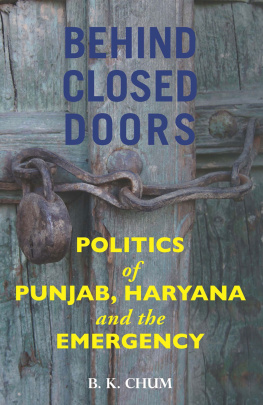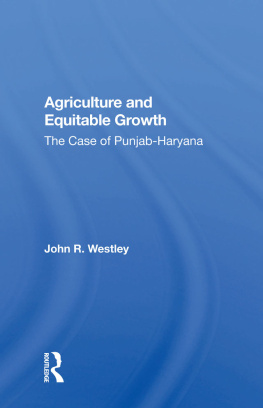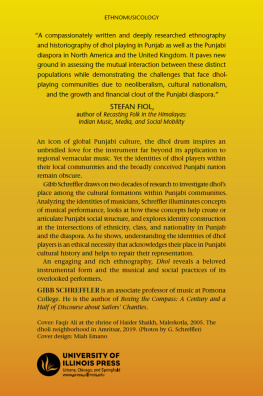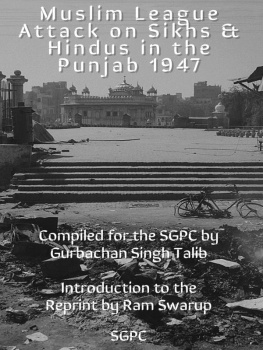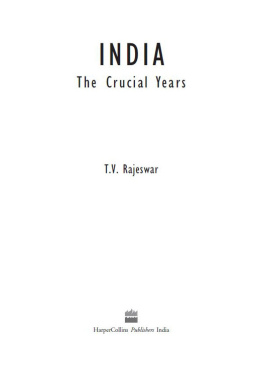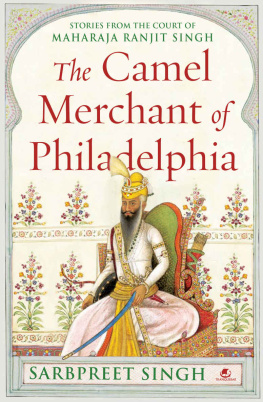Hay House Publishers (India) Pvt. Ltd.
Muskaan Complex, Plot No.3, B-2 Vasant Kunj, New Delhi-110 070, India
Hay House Inc., PO Box 5100, Carlsbad, CA 92018-5100, USA
Hay House UK, Ltd., Astley House, 33 Notting Hill Gate, London W11 3JQ, UK
Hay House Australia Pty Ltd., 18/36 Ralph St., Alexandria NSW 2015, Australia
Hay House SA (Pty) Ltd., PO Box 990, Witkoppen 2068, South Africa
Hay House Publishing, Ltd., 17/F, One Hysan Ave., Causeway Bay, Hong Kong
Raincoast, 9050 Shaughnessy St., Vancouver, BC V6P 6E5, Canada
Email: contact@hayhouse.co.in
www.hayhouse.co.in
Copyright B. K. Chum 2014
The moral right of the author has been asserted.
The views and opinions expressed in this book are the authors
own and the facts are as reported by him, which have been verified
to the extent possible, and the publishers are not in any way
liable for the same.
All rights reserved. No part of this book may be reproduced by any
mechanical, photographic, or electronic process, or in the form of a
phonographic recording; nor may it be stored in a retrieval system,
transmitted or otherwise be copied for public or private use other
than for fair use as brief quotations embodied in articles and
reviews, without prior written permission of the publisher.
ISBN 978-93-81398-50-0
Designed and typeset at Hay House India
Printed and bound at
Saurabh Printers, New Delhi
To
The memory of
my father, the late Gauri Shanker,
and
also to
my wife Raj,
my children, their spouses
and
my grandchildren
When I started writing what was supposed to be my memoirs, little did I realize that it would take the shape of a chronicle with a focus on Punjab, Haryana and the Emergency.
I have presented here, as accurately as possible, an account of my interactions and encounters with newsmakers and the people who mattered (and continue to matter) in public life. I have considered myself a journalist with a keen sense of curiosity who has constantly attempted to sniff out news from behind closed doors!
It had never occurred to me that I would ever write a book and that too in my sunset years, when memory starts fading. The idea for writing what was originally meant to be my memoirs took seed after my retirement from the Indian Express in late 1991, when I casually mentioned what I had in mind to Vijay Kumar Chopra, chief editor of the Jalandhar-based Punjab Kesari Group of newspapers. However, my professional commitments did not then permit me to begin the writing process.
Many years later, in 2008, I disclosed to Navneet Sharma, the Chandigarh-based special correspondent of the Hindustan Times, that I had been maintaining diaries since 1969 and had been recording my experiences and observations while dealing with a host of leading politicians and other public figures. He affirmed that my diaries could provide excellent material for a book and began persuading me to get cracking! The seed began germinating.
As I started writing, I faced a dilemma on two counts: whether I should make public what had transpired in the closed-door meetings held in the Prime Ministers House before and after the proclamation of the Emergency (on 25 June 1975) and whether I should also reveal the behind-the-scenes discussions held by Akali Dal and Congress leaders, which had a deep impact on the then terrorist-hit Punjab, where the situation was volatile in the 1980s and the early 1990s. (The full name of the party is Shiromani Akali Dal.)
Given the fact more than 36 years have passed since Emergency was lifted (in late March 1977) and given the fact many countries including India, which now has a potent tool in the form of the Right to Information Act have also been declassifying their secret documents after the passage of 30 years, apart from the recent astounding revelations made by WikiLeaks, I believe that I have been freed not only from the confidentiality condition (that required me to protect my sources) but also from the charge of breaching journalistic ethics. Consequently, I decided to divulge the vital information having far-reaching implications for the Indian polity that I had gathered in my more than six-decade-long career. Such information, I felt, would otherwise have remained buried under the debris of history.
***
There are high points in the career of every individual and a journalist is no exception. The most important achievements in the life of a reporter/correspondent are his or her scoops and perceptive analyses of events, which act as a yardstick to judge his or her professional capabilities and credibility.
When I look back at my fairly long innings, I derive great satisfaction that I could fulfil my ambition that I had nursed in the early 1950s to become a journalist. What has given me even greater satisfaction has been my weekly syndicated political column Currents and Undercurrents (which I began writing on the suggestion of the late Prabhash Joshi, resident editor of the Chandigarh edition of the Indian Express when I was special correspondent and regional news coordinator of that newspaper) that appeared for nearly 33 years from 1980 onwards. The column essentially dealt with the politico-socio-economic issues of the north-western region of India, with particular emphasis on Punjab and Haryana. At times, the column also highlighted the crucial events taking place in Pakistan because of their implications for Punjab and Jammu and Kashmir.
Though the column was by and large appreciated by the readers, I believed that criticism more than appreciation lends greater credibility to what a journalist writes and it is such criticism that keeps him or her on the right track. As an example, let me refer to my persistent condemnation of the militants violent activities in my column in the 1980s. Such condemnation led to my name being included in the terrorists hit list!
***
I have selectively used the news-oriented contents of the diaries that I have maintained after moving from my native city Ludhiana to Chandigarh in 1968 to join as staff correspondent of the Jawaharlal Nehru family-owned National Herald when it started its Delhi edition.
***
Indias post-1980s generation, constituting a huge chunk of the countrys population, has very little or no idea about the horrors of the Emergency, which has become ancient history for them. Also, todays youth are not fully aware of what the people of Punjab had faced during the terror years when the government, the judiciary and the police were virtually paralysed and political parties had been rendered irrelevant by foreign-backed militants. In this volume, I have tried to bring out the extreme turbulence that prevailed in Punjab when the state was in the vice-like grip of terrorism.
I have narrated accounts of my interactions with some of Indias prominent public figures, including Master Tara Singh, Giani Zail Singh, Devi Lal, Bansi Lal, Bhajan Lal, Sant Harchand Singh Longowal, Parkash Singh Badal, Surjit Singh Barnala, Arjun Singh, Siddharth Shanker Ray, Julio Ribeiro and K. P. S. Gill. These interactions provided valuable insights into the working of their minds and the strategies they formulated. I must make special mention of my meeting with Jarnail Singh Bhindranwale, who, along with his followers, had converted the Golden Temple in Amritsar into a fortress.
***
Journalists are not meant to be scholarly historians; they only write instant history. Also, they cannot claim that their versions faithfully depict events as they unfolded. They are always prone to overlook the intricate details at times. This work may also suffer from such a shortcoming. For instance, in some cases, I have not been able to provide the exact dates or the names of persons because, due to the pressures of meeting deadlines, I could not keep my diaries up to date. At times, there could be some repetition, but such repetition is necessary to make each chapter complete in itself. Some errors may have inadvertently crept in; I shall be grateful if the readers could point them out so that they can be rectified in the next edition.
Next page
